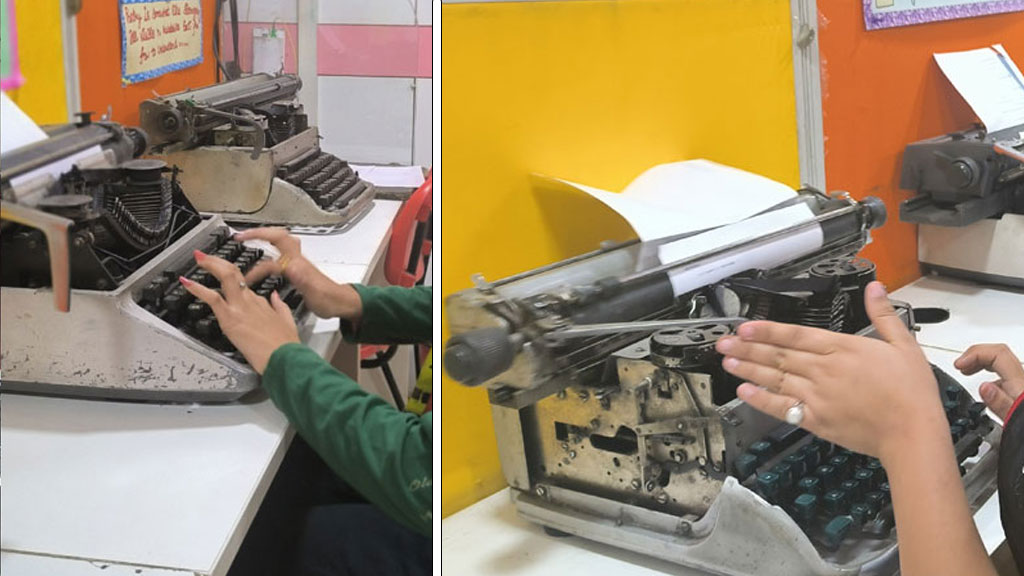Introduction:
In a fast-paced world where information flows at the speed of thought, the art of capturing spoken words with lightning speed is a valuable skill. Welcome to the world of stenography—a discipline that blends precision, speed, and finesse to transform spoken words into written records. In this blog post, we’ll explore the significance of stenography courses, the skills they cultivate, and the diverse opportunities that await those with the ability to capture the spoken word with efficiency and accuracy.
The Essence of Stenography Courses: Stenography courses are designed to equip individuals with the specialized skill of capturing spoken words in real-time through shorthand writing. This skill is particularly valuable in professions where fast and accurate transcription is essential, such as court reporting, medical transcription, and live event captioning.
Learning the Shorthand System: The heart of stenography lies in learning a shorthand system—a set of symbols or abbreviations that represent sounds, syllables, or words. Stenography courses introduce students to a specific shorthand system, such as Pitman, Gregg, or StenEd. Students learn to master these symbols, enabling them to write at speeds that far exceed traditional handwriting.
Speed and Accuracy Training: One of the key focuses of stenography courses is training in speed and accuracy. Students practice transcribing spoken words at increasingly faster speeds, gradually building the muscle memory and reflexes needed to keep pace with real-time speech. The goal is to achieve high accuracy even at rapid speeds, making stenographers invaluable in professions where precision is paramount.
Real-time Transcription Techniques: Stenography courses teach techniques for capturing spoken words in real-time, whether in a courtroom, during medical procedures, or in live event settings. Students learn to listen, process, and transcribe simultaneously, honing their multitasking abilities and developing the mental acuity needed for on-the-spot transcription.
Specialized Vocabulary and Terminology: In professions like court reporting or medical transcription, stenographers encounter specialized vocabulary and terminology. Stenography courses often include training in these specific fields, ensuring that students are well-versed in the language and terminology relevant to their chosen profession.
Technology Integration: While the essence of stenography lies in shorthand writing, technology has played a significant role in modernizing the field. Many stenography courses incorporate training in stenotype machines and specialized software that can translate shorthand notes into readable text. This integration of technology enhances efficiency and expands the range of opportunities for stenographers.
Professional Ethics and Practices: Stenography courses emphasize the importance of professional ethics and practices. Students learn about confidentiality, accuracy, and the ethical considerations involved in transcribing sensitive or confidential information. These principles are crucial for maintaining trust and integrity in professions where stenographers play a pivotal role.
Versatility of Stenography Careers: Completing a stenography course opens the door to a range of diverse career opportunities. Stenographers can find employment in legal settings, courtrooms, medical facilities, live captioning for events, and even in television broadcasting. The versatility of the skill allows individuals to choose a career path that aligns with their interests and preferences.
Continuous Skill Development: Stenography is a skill that benefits from continuous practice and refinement. Stenography courses often encourage students to engage in ongoing skill development, including practice sessions, speed drills, and exposure to various transcription scenarios. This commitment to continuous improvement is essential for staying sharp and relevant in the field.
The Future of Stenography: While technology has automated many processes, the unique skills possessed by stenographers continue to be in demand. The accuracy and efficiency of real-time transcription provided by skilled stenographers make them indispensable in various professional settings. As technology evolves, stenography courses adapt, ensuring that graduates remain at the forefront of the field.
Conclusion:
Enrolling in a stenography course is not just a pathway to acquiring a skill; it’s an entry into a dynamic and in-demand profession. The ability to capture spoken words with speed and precision opens doors to diverse and rewarding career opportunities. So, if you have an aptitude for precision, a love for language, and a knack for multitasking, a stenography course may be your key to a successful and fulfilling career in the world of transcription.

